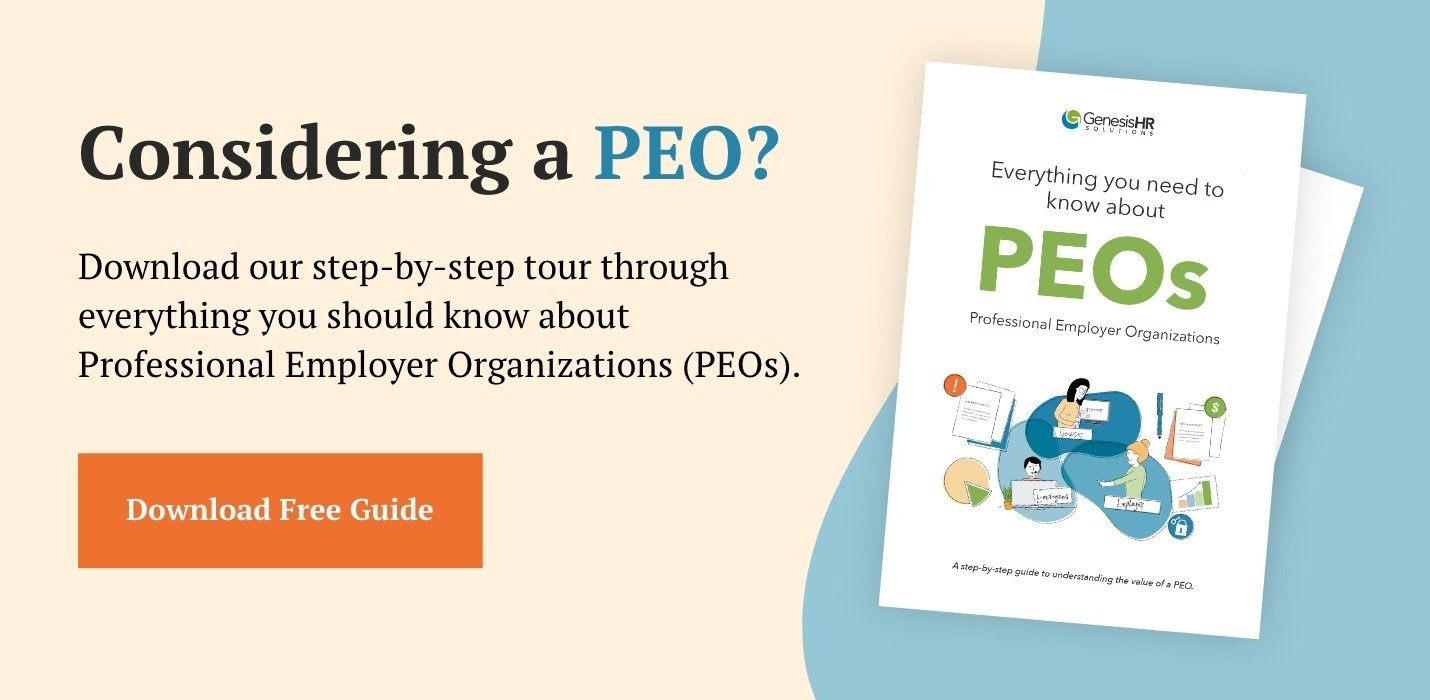No matter where you look, you can’t escape the predictions that the world is on the brink of an economic recession. In fact, 91% of CEOs of large U.S. companies are predicting a recession within the next year, which can be terrifying if you’re the owner or CEO of a small to midsize business that is still settling into the new normal post-COVID-19.
So what’s a small business owner to do?

It may be difficult to conjure up anything but fear when faced with the prospect of a recession, but fear doesn’t have to rule the day; you can also look at it as a chance to strengthen your business.
Kathy Bennett of Bennett Packaging agrees that many small business owners find the word ‘recession’ to be a cause for panic. “In reality, that’s the worst thing you can do,” she says. “Instead of panicking, take this opportunity to review your business’ finances, re-evaluate your current products or services, and look for new ways that you can cut back in your business to save money. Either way, focus on preparing—do NOT panic!”
While no one knows exactly what the future holds, there are things you can do to anticipate what a recession might look like and lessen the negative impact your business might face. As you read through these more than 70 ideas from small and midsize businesses owners and leaders, compare them to your own recession preparation plan—or, if you don’t have one yet, consider adding them.
And no matter what happens, know that GenesisHR will be here to serve our PEO clients and help you ride out the choppy waters of the economy no matter what—just as we have for the past 30+ years.

By partnering with GenesisHR you’ve already addressed some of your largest expenses. GenesisHR provides cost-effective and comprehensive large company benefits. The stability of this benefit program eliminates the need to shop and mitigate significant annual increases. We have you covered!
“The first step in preparing for an economic recession is to evaluate your current financial situation. This includes taking a close look at your income, expenses, debts, and assets. This will give you a clear picture of your overall financial health and help you identify any areas that may be vulnerable during an economic downturn. This is important because it will help you determine how best to prepare for an economic recession. If you have a good handle on your finances, you’ll be in a better position to weather the storm. However, if you’re overextended or have weak financial foundations, you may need to take steps to shore up your finances before a recession hits.”
 —Jennifer Spinelli of Watson Buys
—Jennifer Spinelli of Watson Buys

The GenesisHR partnership helps you meet the needs of your employees. Our team of HR experts is available to your employees as an extension of your team. We’re here to answer questions, provide guidance, and even educate on flexible work arrangements or leave of absence options.
“Over the past few months, our employees have really felt the sting of inflation, especially because most of them have to do the daily commute to fulfill their duties. Because of this, we are studying how we can better support our employees. We are going a bit lean on hiring because we want to make sure our teams are well-supported even if we experience a reduction in sales, which is possible given that we are viewed as a non-essential service that is often the first to go when times are hard.”
—Michael Newman of Michael K. Newman Breast and Body Plastic Surgery
“Keeping the lines of communication open with your employees is the most important thing you can do as a small business owner to get ready for a recession, in my opinion. Tell your staff what’s going on with the company and why certain choices were made. You can increase your company’s flexibility and responsiveness in the event of a downturn by hiring freelancers.”
 —Ellie Shippey of EZContacts
—Ellie Shippey of EZContacts
“When employees have less money for sustenance due to an economic crisis, they often tend to be more stressed, and as a result, less productive and less satisfied with their jobs. It’s imperative to offer them additional financial support during the crisis. This way, they are more likely to stay with your company during an economic downturn, and contribute positively to your company’s survival and profitability during these tough times.”
 —Nathan Sanders of Plumbing Navigator
—Nathan Sanders of Plumbing Navigator
“We understand that a recession affects us all and so employee morale must be kept high; after all, they are the driving force of our business. One-to-one check-ins will start to occur more frequently in order to understand what each individual’s needs are during a financial crisis. Rumors and anxiety may develop surrounding layoffs. The best thing to do in this situation is to be transparent; the longer you let it fester, the worse it becomes.”
 —Morgan Lilker of Watches of Today
—Morgan Lilker of Watches of Today
“If your organization provides an employee assistance program (EAP) or wellness program, let workers know. Many companies provide short-term treatment, referrals, and other mental health services via EAPs. It’s a place where employees may get help for change or stress. This option may minimize recession-related anxiety.”
 —Adam Crossling of Zenzero
—Adam Crossling of Zenzero
“It’s crucial to keep building your team, recession or not. Reiterating your organization’s goals and ideals may do wonders for morale and loyalty. Remind them of the reasons they decided to work with your organization and ask for their continued dedication as they face the ups and downs of the future. For workers to persevere through tough economic times as a unit and achieve their goals, they need to feel they are contributing to something bigger than themselves.”
 —William Kemper of Kemper DMD
—William Kemper of Kemper DMD
“Maintain communication with your employees regarding the current status of your company and the ‘why’ behind crucial choices. You might also investigate the possibility of supplementing your staff with independent contractors in order to maintain your company’s adaptability and responsiveness during a downturn. This is one of the best ways to safeguard your company.”
 —Adam Fard of Adam Fard UX Agency
—Adam Fard of Adam Fard UX Agency

With our experienced HR professionals the GenesisHR team consults with clients to identify creative ways to meet hiring needs. This may include filling a full-time position with a few part-time employees, or offering per diem work options, or introducing other flexible work arrangements. Knowing the options and understanding pay and benefit rules helps employers to make the right hiring decisions.
“Due to the recession, some businesses have to lay off employees, which damages the company’s culture, reputation, and the livelihoods of those who are fired. Therefore, to be prepared for the recession, businesses should only hire employees who are critical to the company’s operations and functionality. Keeping only crucial employees will prevent the need to terminate workers during a downturn, avoiding resentment and a bad reputation.”
 —Rhett Stubbendeck of LeverageRx
—Rhett Stubbendeck of LeverageRx
“It’s always best to be sure that any recent surge in new business is going to be sustainable for the long term. During a recession, clients or customers can drop off fast, anytime, making stability a challenge. A better approach to hiring is to bring on a contractor to help with any new surge in business until stable growth is more easily predicted.”
 —Scott Bates of Real Authority Media
—Scott Bates of Real Authority Media
“I would suggest that because the country is so close to reaching full employment, it is difficult for many small enterprises to fill open positions. Therefore, rather than looking to hire full-time employees at this time, consider contracting out some of the work to freelancers or independent contractors. If you need staff on a full-time or part-time basis, you may be able to cut costs by recruiting remote workers in regions of the country with lower overall costs of living. Just make sure that you don’t neglect to check how recruiting workers in other states provides you nexus in that state, and that you comply with the regulations that are set forth by that state.”
 —Joe Troyer of Digital Trigger
—Joe Troyer of Digital Trigger

“Consumers are going to have to make hard decisions about where to spend their money in the event of a recession. Working to keep your existing customer base loyal and secure their business through the rough times to come is a great way to maintain cash flow, even if you have to cut prices to do it.”
 —Carter Seuthe of Credit Summit
—Carter Seuthe of Credit Summit
“As a lawn care and landscaping business, I know we’re not essential. If times get super tough, I understand that people might let certain things slide and we might be one of those things. That’s why it’s so important to build and maintain relationships with your customers. It might be the thing that keeps you in business.”
 —Tom Monson of Monson Lawn & Landscaping
—Tom Monson of Monson Lawn & Landscaping
“You need to be more flexible about pricing and payment if you want to keep your customers. You could give them a longer time to pay or you could try a different pricing approach. At our boxing studio, we are shifting toward auto-renewing class packs over memberships in light of inflation. Auto-renewing class packs gives customers the ability to control when they’re charged. Also, our class packs will be able to be canceled upon 0 days notice (whereas memberships require 30 days notice).”
 —Emily Stork of Worth The Fight Boxing
—Emily Stork of Worth The Fight Boxing
“It is typically 6–10 times more expensive to market to and acquire new customers as opposed to upselling existing customers. During an economic recession, your customers are feeling the pain too, and they are more likely to stick with brands they know. By focusing your marketing budget on your existing customers, you can run leaner, while still taking advantage of free or low-cost marketing channels like social media to keep the new customer funnel open.”
 —Richard Clews of pantsandsocks.com
—Richard Clews of pantsandsocks.com
“Creating a community within your company can get you through the hardest of times. When your customers feel connected with your company, they stay with you during economic hardship. Rewarding loyal customers with promos and deals will help you sell products and keep business going even if you’re not selling at full price. A company that treats its customers well is prepared for any setback.”
 —Stacy Cason of Planetarie
—Stacy Cason of Planetarie
“Offering exceptional value during a downturn is a great way to gain new clients. Think long and hard about the quality of the service you provide to customers before engaging in a price war with rival businesses. Customers are loyal to businesses that they perceive add value, deliver superior goods or services, and routinely outperform the competitors.”
 —Michael Dadashi of Infinite Recovery
—Michael Dadashi of Infinite Recovery

“During a recession, people are likely to be more conservative with their spending, preferring lower-risk ways to engage while saving their funds for essentials. If your ideal client or customer were to suddenly have half the discretionary income they normally have, what discerning decisions might they need to make? How can you anticipate those needs and position your business as more of an essential that they’d be willing to continue spending with—even if there’s less to spend?”
 —Kelly Mosser of Kelly Mosser Consulting
—Kelly Mosser of Kelly Mosser Consulting
“To ensure that your business is prepared to weather an economic recession, make sure to review your services to ensure they are recession-proof. Weed out services that aren’t as lucrative and focus on your most irresistible options. This will help you guarantee consistent income even during a recession.”
 —Chad Price of Chad Price
—Chad Price of Chad Price
“My advice for small business owners getting ready for a recession is to be as adaptable as possible. Understand the state of the economy, pay attention to feedback from your target audience, and gather the data you need. Get ready to make adjustments or a U-turn based on what you learn.”
 —Robert Warner of VirtualValley
—Robert Warner of VirtualValley
“In my opinion, strategies and products that were successful in the past may no longer be viable options or may not fulfill the requirements that your clients have at this time. Always keep an eye on the state of the economy, pay attention to feedback from your customer base, and do the appropriate amount of research. Prepare yourself to modify or change your strategy in accordance with the information you find.”
 —Adam Wood of RevenueGeeks
—Adam Wood of RevenueGeeks

“During an economic recession, customers start to think about cutting back or getting a better deal. This is a great opportunity to get customers to give you a try, especially if your business has repeat customers. For example, during the last recession I switched property managers for my investment property (I’d been thinking about it for years but had never done it). I’ve been a loyal customer ever since.”
 —Keiran James of BusinessSales
—Keiran James of BusinessSales
“A vital part of any day-to-day business operation is getting referrals. Without a steady flow, revenues can decline quickly. Consider ideas a part of the company’s culture to ensure that recommendations continue to come in. Make sure that each of the ways you market to both current and potential customers—via phone, emails, social networks, seminars, meetings, and so forth—includes a referral opportunity.”
 —Patrick Johnson of C&H Essentials
—Patrick Johnson of C&H Essentials
“Reach out to different customer groups or industries through marketing or partnerships, and consider redefining your target audience. Doing so can help add other revenue streams for your business to thrive and survive economic downturns.”
 —Ryan Stewart of Webris
—Ryan Stewart of Webris
“Don’t cut client prospecting or customer attraction time. Think of ways you make your firm their ‘go-to’ in any economy. Depending on your business, offer training or support services, bulk discounts, or early payment discounts. Diversify your sales channels. Many small businesses boosted their web presence during the pandemic, but this trend has reversed. People will watch their spending with record-high gas costs. They’ll drive less and shop more online. Even in a healthy economy, you need to diversify your sales channels to reach more customers.”
 —Michael Hess of Code Signing Store
—Michael Hess of Code Signing Store
“In order to have as many interested potential customers as possible, use tools to help you gather the emails and phone numbers of visitors to your retail or online website. This way you can remarket to them once the recession hits. Knowing they were interested prior to the recession makes selling to them easier.”
 —Jeff Moriarty of Moriarty’s Gem Art
—Jeff Moriarty of Moriarty’s Gem Art

“During economic downturns it may be necessary to adjust price points. It’s better to sell products or services at a discount than sell little or nothing at all. Expanding your customer base is also a good idea. If you’re in a niche market, a few adjustments can open your business to new customers. This provides a safeguard for any future turbulent times.”
 —Therise Edwards of Teshley Solutions LLC
—Therise Edwards of Teshley Solutions LLC
“From my perspective, working out a contract where one hand washes the other is one approach to increasing client loyalty. Offer rewards in return for a minimum sales volume, or alter your services in return for short payback terms. Being adaptable can increase customer loyalty and repeat business, and enhance factors that help to sustain revenue streams.”
 —Sasha Quail of Claims UK
—Sasha Quail of Claims UK
“Structure the business to be nimble and flexible when possible. Set up lines of credit with your lender to have liquidity when you need it the most. It’s advised to get these set up before you need them so they are in standby mode for when you do. Review existing employer-sponsored retirement plans to understand the amount of flexibility, in both timing and amount, of employer contributions. Consider amending the plan or exploring different plan types if funding is too rigid.”
 —Jason Krueger of Ameriprise Financial
—Jason Krueger of Ameriprise Financial
“Think about various price structures. During a recession, people typically spend less money. Consider cost-cutting measures while you evaluate your product. A subscription model is one approach to accomplishing this. We give our subscribers 15% savings and free shipping. A subscription-based business model also promotes client retention and loyalty, which is essential during a downturn in the economy.”
 —Adrian Paul of NC CuttingTools
—Adrian Paul of NC CuttingTools

“As a business owner, I suggest creating a strong brand built on an effective marketing strategy during an economic recession. Marketing is the lifeline to growing your online store. The companies that focused on their marketing performed well during a recession because they have a strong, easily recognizable identity that helps form an emotional connection with customers.”
 —Angus Chang of Iupilon
—Angus Chang of Iupilon
“While some firms might believe that during a recession they should cut back on their marketing, that is not the case. Instead, businesses must continue to be on customers’ minds throughout these times. Consistent social media posting, retargeting advertisements, consistent email marketing, a frequently maintained blog, plus trying to make sure the business website is kept up to date with any announcements, events, promotions, etc. are all effective ways to achieve this.”
 —Sai Blackbyrn of Coach Foundation
—Sai Blackbyrn of Coach Foundation
“Businesses do not take enough action. Facebook, Instagram, TikTok, YouTube & Email are all FREE yet 90% of small businesses take little to no action on each. Instead of a few posts per week, make 10 per day! Money follows attention, and small businesses are failing miserably at using today’s tools to get attention.”
 —Matt Plapp of America’s Best Restaurants
—Matt Plapp of America’s Best Restaurants
“Do not slash your advertising budget just because you need to save money. Marketing efforts should be diversified rather than concentrated on bringing in new customers. To maintain the same volume of new customers you enjoyed before the recession, you will need to increase your marketing efforts, not decrease them.”
 —Tiffany Payne of Orangeries UK
—Tiffany Payne of Orangeries UK
“When the economy is in recession, customers gradually stop spending money on secondary needs. However, I found that by doubling down on my digital marketing efforts when the economy is declining, I can remind my customers why they are using my software in the first place, and the many benefits it accords them. Consistent marketing helps me retain customers, while also bringing new ones into the fold, allowing me to gradually increase market share in spite of the tough economic conditions.”
 —Anup Kayastha of Height Comparison
—Anup Kayastha of Height Comparison
“When you cut your spending, it does not imply that you should stop investing in your company; rather, it means you should allocate your money to the areas in which it will have the largest impact. Continue to put money into marketing and advertising campaigns, and keep an eye out for opportunities for expansion whenever they come along.”
—Tia Campbell of Practice Reasoning Tests

“If you can, prioritize paying off your debts. It’s crucial to know which bills you must pay because you may have to skip paying one or more of them if your income is lost. After all, if you lose your job, you might not be able to pay all of your bills each month on time or in full. Your credit ratings will be directly impacted by this.”
 —Shad Elia of New England Home Buyers
—Shad Elia of New England Home Buyers
“Don’t put off paying your creditors if you do not have to. You might think that deferring payments to potential creditors would increase your cash reserves. However, this tactic can fail if money is truly tight. It is preferable to pay your obligations on time and keep excellent connections with your creditors. The goodwill you build by paying your obligations on time today can help you establish better relationships with your creditors if you ever experience a financial crisis.”
 —William Drow of Starlinkhow
—William Drow of Starlinkhow

“I have set aside savings that will help my business survive at least three months without an income. I would recommend having between three and six months’ worth of expenses, but this is something that needs to be decided based on one’s cash flow, forecast, and revenue trends. I have slowly built up this emergency fund by automating the transfer of a certain amount or proportion of my monthly revenue to the new account.”
 —Kevin Mercier of KEVMRC TRAVEL
—Kevin Mercier of KEVMRC TRAVEL
“A lack of cash is the #1 reason businesses fail. Having cash reserves helps ensure that your business can protect its good employees, and cover its other fixed & variable costs in a recession. You can liken it to an ‘emergency fund.’ An emergency fund is a normal part of personal financial planning. As a business owner, you should treat your emergency fund with even greater importance since your business provides for your—and all your employees’—well-being!”
 —Carl Grande of Grand Capital Mgmt
—Carl Grande of Grand Capital Mgmt
“All your revenue shouldn’t be spent on consumption or transactionary purposes alone. The recessionary period could extend from months into a year. As a small business owner, you need to be forward-thinking and proactive in how you handle money, and save your available resources for emergencies you never planned for. Having enough in savings can help cushion the shock effect of recession.”
 —Danilo Coviello of Espresso Translations
—Danilo Coviello of Espresso Translations
“Making every effort to keep more money coming into your company rather than leaving it will help you weather an economic downturn. To maintain the building, pay necessary personnel, and buy supplies, even just a trickle of income is needed. Don’t forget to account for a monthly withdrawal for your expenses.”
 —Dean Lee of 88Vape
—Dean Lee of 88Vape
“To prepare for economic downturns, I recommend conserving money. Save as much as possible. Even a small monthly savings will help when income drops. Check for subscription fees. Some banking institutions waive the monthly maintenance cost in exchange for a minimum balance. If you’re worried about monthly charges, try a fee-free account.”
 —Gerrid Smith of Joy Organics
—Gerrid Smith of Joy Organics
“You can have a safety net with emergency money in case you experience a job loss or economic downturn. Even a little monthly reduction in wasteful spending will help you get a head start on setting aside money for emergencies. If you want to save your money somewhere that would provide you better returns, you can also check into high-interest savings accounts.”
 —Megan Young of MCS Rental Software
—Megan Young of MCS Rental Software
“When an economic recession is on the horizon, small business owners should take steps to build up a financial cushion. This will help them weather any slowdown in business without having to make major changes. One way to do this is to save money each month so that you have a reserve to draw from if needed.”
 —Jonathan Saeidian of Brenton Way
—Jonathan Saeidian of Brenton Way
“Never take anything for granted, and always make sure that in good times you prepare for the worst. In other words, always bank half of your profit so you have an economic umbrella for a financially rainy day.”
 —Matthew Osborn of Legionary
—Matthew Osborn of Legionary

“Delete any charges that are useless to you. Find a vendor who delivers the same quality at a lesser cost, if at all possible. Having extra cash on hand during a recession can be helpful. After all, money is always moving outward during a recession, making it challenging to run a more productive business.”
 —Matthew Dailly of Tiger Financial
—Matthew Dailly of Tiger Financial
“Small business owners should find ways to cut down on their production costs. This can be achieved by reducing expenses on inputs that are not essential. Part of it is knowing how to effectively combine the available inputs to give the desirable level of output as you approach the recession phase. When production costs are lowered, you will be able to take care of other expenses that may arise during the recession periods.”
 —Cassie Alongi of We Buy Any House In California
—Cassie Alongi of We Buy Any House In California
“Reconsider your spending habits by creating a detailed budget that enables you to put money aside for the future. In the long run, cutting out unnecessary spending can help you become more financially solid. You may eliminate pointless expenditures and put more money aside for an emergency fund by using budgeting tools or making a spreadsheet of your costs.”
 —Aimi Davis of Online Mediums
—Aimi Davis of Online Mediums
“Imagine your business like an elite racing car. The engineers will work hard to make every single component from the seats to the screws as light as possible to make the car run faster. You should also be going through your company to make every expense as small as possible. If you do this early, you’ll be better prepared for economic recession and you’ll have more time to react. Also, any money you have because of these measures shouldn’t just be spent on something else but should be saved.”
 —John Ricco of Atlantic Group
—John Ricco of Atlantic Group
“Review your expenses and make changes where necessary to conserve as much cash as possible. This may include cutting back on non-essential items, negotiating better rates with vendors, or offering discounts and promotions to customers. You should also consider ways to increase your revenue, such as introducing new products or services, expanding into new markets, or increasing your marketing efforts.”
 —Peter Monkhouse of ICL SA
—Peter Monkhouse of ICL SA
“Look for more cost-cutting solutions that do not compromise productivity. Controlling your spending is essential as it provides additional finances during a crisis. Examine monthly expenses and ask yourself: Do I truly need [a particular expenditure]? Next, consider whether there is a less expensive option for that specific expense. You could be wasting money on something unnecessarily, or you might not have found the most cost-effective option for your needs.”
 —Matthew Roberts of My Choice
—Matthew Roberts of My Choice
“Put aside as much cash as you can to ensure the survival of your small business in the event of a recession. One way to reduce spending is to carefully consider what it is you actually require. You need to be pickier in your future acquisitions. Smaller purchases are the best approach to cut costs. It’s worth a shot to haggle for lower prices. The best way to save money is to compare prices from different suppliers. Shop around to ensure you’re receiving a fair price.”
 —Kim Abrams of Abrams Roofing
—Kim Abrams of Abrams Roofing

“Knowing where you are in terms of liquidity helps you deal better with surprises along the way. A recession can—and will—hurt, but you’ll know exactly where you are. You can skip the distracting step of trying to figure out what you have to lose and immediately get to work on how to save it.”
 —Dolev Schreiber of DetourOn Inc.
—Dolev Schreiber of DetourOn Inc.
“To stay afloat during tough times, it’s important to be aware of your company’s cash flow situation at all times. This means tracking your revenue and expenses on a regular basis, and being proactive about cutting costs where necessary. In addition, small business owners should have a contingency plan in place in case of an economic downturn. This plan should include ways to conserve cash and keep operating costs low.”
 — Joshua Haley of Moving Astute
— Joshua Haley of Moving Astute
“The most important thing you can do is to make sure that your finances are in order so that you don’t have to worry about anything else when an economic recession hits. It is important to be financially literate and know how to save money when you have the opportunity. It is also important to have an emergency fund you can use in case of an economic recession.”
 —Thomas Niemczewski of Dream Chasers
—Thomas Niemczewski of Dream Chasers
“Much like you would during periods of inflation, monitor your cash flow, cut discretionary spending, and watch your financial metrics to understand your financial standing during a recession. The more you pay attention to your finances, the more recession-proof your business will be.”
 —Mario Cacciottolo of SBO
—Mario Cacciottolo of SBO
“Your company can’t survive without a steady inflow of cash, and problems with cash flow are to blame for the collapse of 82% of all enterprises. You should constantly know your figures so you know what to prioritize and what to cut to maintain profitability in both prosperous and lean periods, regardless of external factors such as natural disasters or pandemics.”
 —Shakzod Khabibov of Natura Market
—Shakzod Khabibov of Natura Market
“Your receivables should be collected; don’t let them stretch longer than they should. In another situation, you may have been in a position to allow your creditors to pay later. However, now is not the time.”
 —Ethan Caffrey of Storific.com
—Ethan Caffrey of Storific.com
“During a recession, cash flow is everything for a small business. Review your business plans and your operational budget, and if you anticipate a need for funding, make those preparations now before you are hard-pressed for time. Negotiate with vendors to see if you can cut costs in that area. Make sure your relationship with your financial institution is strong, and be transparent about your financial position. Ensuring a strong relationship with your bank can help you weather the storm.”
 —Anthony Martin of Choice Mutual
—Anthony Martin of Choice Mutual

“I highly recommend securing a line of business credit well before an economic recession, particularly when your company is doing well. Trying to do it during a recession will be incredibly challenging, and you’re much less likely to be approved. I know some of us are credit averse, but used correctly, loans can be an effective strategy for keeping afloat during trying times.”
 —Matt Raad of eBusiness Institute
—Matt Raad of eBusiness Institute
“Create a financial buffer for your company by raising funds from potential investors. Going to investors for financial stability is a wonderful place to start, because the last thing investors want is for a downturn to destroy the capital they have accumulated.”
 —Craig Jacobelli of Starlinkhow
—Craig Jacobelli of Starlinkhow

“During a recession, it’s very easy to make decisions based on your fears about what might happen. Fear-based decisions are rarely the best ones. Evaluate each decision in terms of both short- and long-term implications. Think beyond the current circumstances.”
 —Shawn Plummer of The Annuity Expert
—Shawn Plummer of The Annuity Expert
“A good business plan can prepare a company in case of a recession. By establishing budgets and cash flows, companies can help themselves survive a recession and another economic challenge. A good business plan also establishes revenue streams. Since good cash flow is a necessity, companies should think outside the box and expand their sources of revenue.”
 —Matthew Roberts of My Choice
—Matthew Roberts of My Choice
“Creating a plan in advance will help you identify issues before they become more serious and give you time to prepare for them. Your plan should entail building relationships with customers who need your services or products and keeping them informed about how the economy is doing, its impact on your business, and your ability to service their needs. When people know what’s going on with their favorite brand, they’re likely to remain loyal even when the economy is in bad shape.”
 —Lisa Richards of Candida Diet
—Lisa Richards of Candida Diet
“Try to have an emergency fund, preferably in a high-yield savings account. Focus on paying off debt before interest rates skyrocket. This applies to other liabilities that your business has incurred as well. The goal is to improve your financial position during the good times to be prepared for the bad times.”
 —Yanis Mellata of Kosy Office
—Yanis Mellata of Kosy Office

“A recession forces businesses to run at any cost in order to survive. The only way to survive a recession is to invest in new technologies, strategies, and ideas. Recessions don’t just bring problems, but also opportunities. Identify your challenges and problems and find new opportunities. It’s all about strategy.”
 —Max Shak of survivalgearshack
—Max Shak of survivalgearshack
“Explore recession-proof products and services that align with your main products. These include groceries, food, pet care, home improvement services, baby products, and healthcare. For example, if you’re a home furniture store, offer home repair services. If you’re a teen and adult clothing retailer, start offering baby clothes and supplies. They are considered essential items by consumers, so they will continue to buy them during an economic downturn.”
 —Peter Hoopis of Peter Hoopis Ventures
—Peter Hoopis of Peter Hoopis Ventures
“There is no better time than during a recession for a company to broaden its product line and increase its customer base. To grow or diversify your business’s offerings without increasing overhead costs, consider advertising novel items or services. Optimize your financial performance by making use of automated processes or technologies. Watch what the rivals are doing, improve your company’s productivity, and look into untapped areas.”
 —Patrick Johnson of C&H Essentials
—Patrick Johnson of C&H Essentials
“Build new income streams. This can include new services that are not directly related to your current services; in fact, the less attached to the original business plan, the less likely it will be impacted if their other income streams are affected. For instance, I know some real estate agents who developed SaaS income by incorporating home maintenance services with their real estate site so homeowners can schedule maintenance and repairs via the realtors.”
 —Erik Wright of New Horizon Home Buyers
—Erik Wright of New Horizon Home Buyers
“One of the most important things you can do is diversify your assets. Having a diversified portfolio helps to protect your business from economic downturns because it minimizes your risk. For example, if you own a small retail business, you could diversify your assets by investing in a rental property or starting an online store. By diversifying your income streams, you’ll be in a better position to weather a recession.”
 —Milosz Krasinski of Chilli Fruit Web Consulting
—Milosz Krasinski of Chilli Fruit Web Consulting
“During a recession there may be unexpected changes to the way your business runs, such as people not having the budget for travel. You have to get creative when finding other things to offer so your business can still profit. Keeping your social accounts active with advice and tips on best ways to travel, connecting with customers, and offering discounted consultations for travel advice are all great ways to support your small travel business through a recession.”
 —Kevin Hwang of Ultimate Kilimanjaro
—Kevin Hwang of Ultimate Kilimanjaro
“A small business’s main revenue source may be disrupted during a recession. Running your physical store, for example, might have paused, or you received fewer visitors during the lockdown, resulting in difficulty selling products. To ensure the business survives, allowing clients to buy online or providing pick-up services will help your company thrive even if the economy is down.”
 —Liam Johnson of The Hitch Store
—Liam Johnson of The Hitch Store
“If you sell services or goods that are non-essential, these are the first things a middle-class audience will cut from their budgets. Start pivoting your services, products, and price points to appeal to a wealthier audience who will be less adversely impacted by a recession.”
 —Claire Pearson of Claire Pearson Coaching
—Claire Pearson of Claire Pearson Coaching
Count on GenesisHR for stability In tumultuous times.
Since 1991, GenesisHR has been helping business owners become better employers. In that time, our PEO has weathered recessions, pandemics, etc…Patty: I’d like to end this with a few sentences about how GenesisHR has helped clients in recessions before and will be there again. Can you provide some context about that? Then, I’ll add a section about contacting GenesisHR now to be proactive.
GenesisHR has been helping employers with various challenges for over thirty years. From challenging economic times to the more recent worldwide pandemic. During the pandemic of 2020, GenesisHR helped clients understand the government relief options that provided some immediate financial stability for payroll. In addition, the GenesisHR team helped businesses move to remote work by developing appropriate practices and policies, communicating changes, and introducing management tools to support a successful transition. In some cases businesses had to temporarily reduce staff and GenesisHR assisted with furloughs and maintained communication to help return employees to full employment when available. In some of the most challenging times our team has provided the greatest value!





